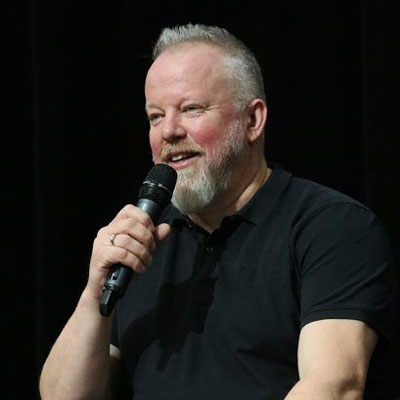Journalist, commentator, newspaper and magazine editor, TV producer, traveller / Journalism
Why did you choose to study journalism?
It was an overnight decision. In the spring of 1988, I returned to Lithuania from the Soviet army. I had been recruited from high school and was not allowed to go to university. When I came back, I saw that Lithuania had changed completely in two years. The Sąjūdis, the struggle for freedom and free speech had begun. I thought about going into history, but then the profession of journalism took on a whole new quality and purpose. And then I decided not to become a historian but a journalist. And I got caught up in all kinds of historical vicissitudes. So I didn't disappear from history either. I have never regretted that choice.
What were your years of study? Tell us your most vivid memories from your studies.
With the beginning of the Revival, the media was liberated. Suddenly there was a need for many more journalists than there were. So more than half of my course went to work - that was the year when Vilnius University introduced free attendance at lectures. I studied both at the university and at my workplace. Eventually, they started to interfere with each other. I had to take academic leave twice. In the end, I graduated in 12 years. Along with other such "second-year students" who dived into editorial jobs. It was memorable that I graduated from VU together with my colleague Henrikas Vaitiekūnas. And he entered journalism the year I was born - 1968. So I guess I didn't study that long.
How did the knowledge you gained at Vilnius University's Faculty of Communication help you in your work?
I experienced a lot of disciplines, because when I started my studies, the history of the Communist Party and typing were still being taught, and when I graduated, there were computers and national journalism everywhere. So there were a lot of subjects that I didn't need at all. Some others were due to education and erudition. As much as journalists and philologists dislike each other, there is no doubt that studying Lithuanian was very important and necessary. And all the professional stuff - from writing a message to the skills of an announcer.
Can you tell us about your working day and also give some tips for students on how to keep up and work efficiently?
I'm a freelance journalist, my own employer. This requires a lot of internal discipline and organisation. I also have many activities going on at the same time, from professional to social. Therefore, one piece of advice would be to plan your activities. Then there is enough time for everything.
What kind of people would you recommend studying journalism to?
Those who are curious, inquisitive, firmly on the ground and who understand that they are not choosing a profession, but a way of life.

